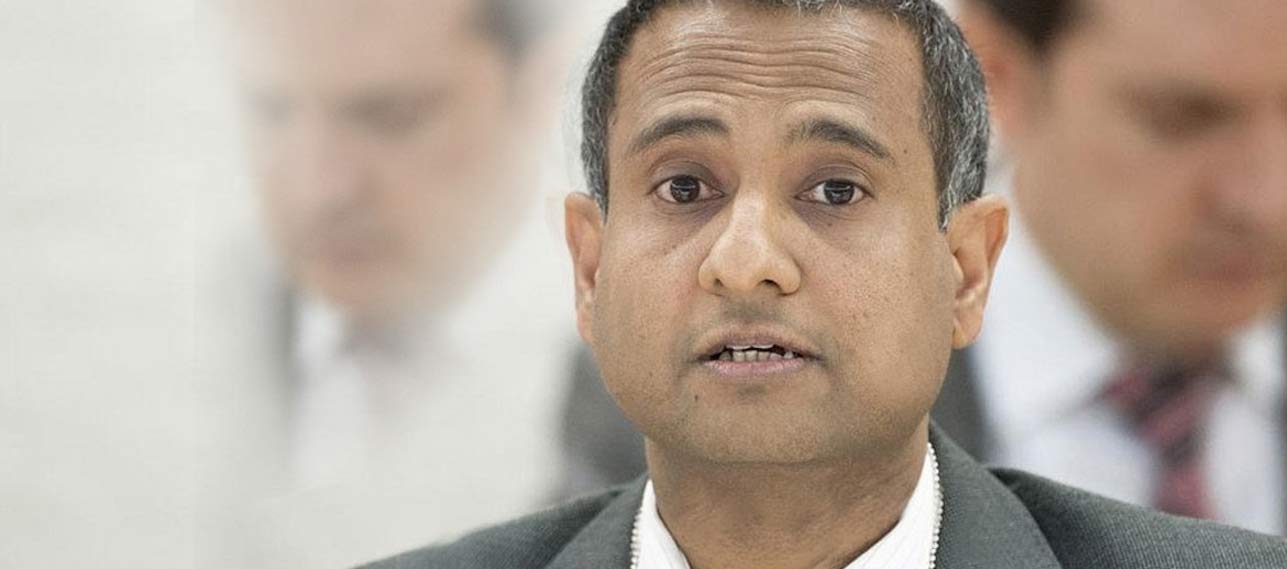A group of distinguished United Nations human rights experts has issued an urgent call to the Iranian authorities, urging the immediate release of seven leaders from the Baha’i community, collectively known as the Yaran. This appeal comes as the fifth anniversary of their arrests draws near, and their detentions were previously declared arbitrary by the UN Working Group on Arbitrary Detention on November 20, 2008 (Dallaire, Roméo, 29 November 2011, “Baha’i People in Iran—Inquiry,” Statements from Roméo Dallaire, The Liberal caucus in the Senate).
Ahmed Shaheed, the Special Rapporteur on the human rights situation in Iran, asserted, “The Iranian government should showcase its dedication to freedom of religion by promptly and unconditionally releasing these individuals, who are being held as prisoners of conscience. These cases exhibit apparent shortcomings in ensuring fair trial standards and pose a significant threat to religious freedom in Iran as a whole.”

In Tehran, on May 14, 2008, authorities arrested Fariba Kamalabadi, Jamaloddin Khanjani, Afif Naeimi, Saeid Rezaie, Behrouz Tavakkoli, and Vahid Tizfahm. A seventh Baha’i leader, Mahvash Sabet, was apprehended on March 5, 2008, in Mashhad. They had collectively formed an ad hoc national administrative body for Iranian Baha’is known as the Yaran. The authorities reportedly held them in custody for over 20 months without formal charges and severely restricted their access to legal representation.
In August 2010, they were handed 20-year prison sentences on charges including espionage, ‘propaganda against the regime,’ ‘collusion and collaboration to endanger national security,’ and ‘spreading corruption on earth.’ Their sentences were later reduced to 10 years the following month. However, in March 2011, the court reinstated the original 20-year prison sentences.
“These seven Baha’is are incarcerated solely for managing the religious and administrative affairs of their community,” stated human rights expert El Hadji Malick Sow, who currently leads the Working Group on Arbitrary Detention. “These individuals were convicted following trials that failed to adhere to the fair trial guarantees established by international law.”
Iran’s constitution officially recognizes and protects four religions: Islam, Christianity, Judaism, and Zoroastrianism. However, Baha’is are not afforded such domestic constitutional safeguards. UN bodies, including the Human Rights Committee, have repeatedly voiced concerns about discriminatory laws and policies that restrict Baha’is from establishing religious institutions, enrolling in universities, and securing public sector employment in Iran.
The UN Special Rapporteur on freedom of religion or belief, Heiner Bielefeldt, warned, “Baha’is in Iran face numerous impediments to practicing their faith freely. I emphasize once more that, as a party to the International Covenant on Civil and Political Rights, the Iranian government must not differentiate between favored and unfavored groups concerning religious freedom.”
“Iran must guarantee that Baha’is and other unrecognized minority faiths can exercise their religious beliefs without obstruction or fear,” emphasized Mr. Bielefeldt.
Rita Izsák, the UN Independent Expert on Minority Issues, reminded that Baha’is constitute Iran’s largest non-Muslim religious minority. “Their existence and religious identity must be safeguarded in accordance with the UN Declaration on Minorities; otherwise, their right to profess and practice their faith freely, without interference or discrimination, may be violated.”
Reportedly, hundreds of Baha’is have been arrested for various activities, including organizing religious gatherings and advocating for the right to education. In his March 2013 report to the UN Human Rights Council, the Special Rapporteur on Iran noted that at least 110 Baha’is were imprisoned in the country at the beginning of that year.
“After five years, I am concerned not only about the unjust denial of freedom to the Yaran but also about the increasing risk faced by all Baha’is in Iran if they engage in community activities,” expressed Mr. Shaheed. The Special Rapporteur called upon the international community, including religious leaders worldwide, to join in the plea to the Government of Iran for the release of the Baha’i leaders.
